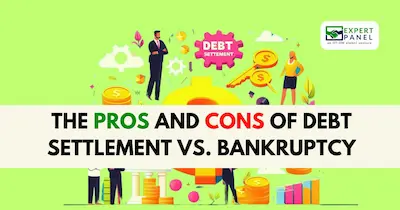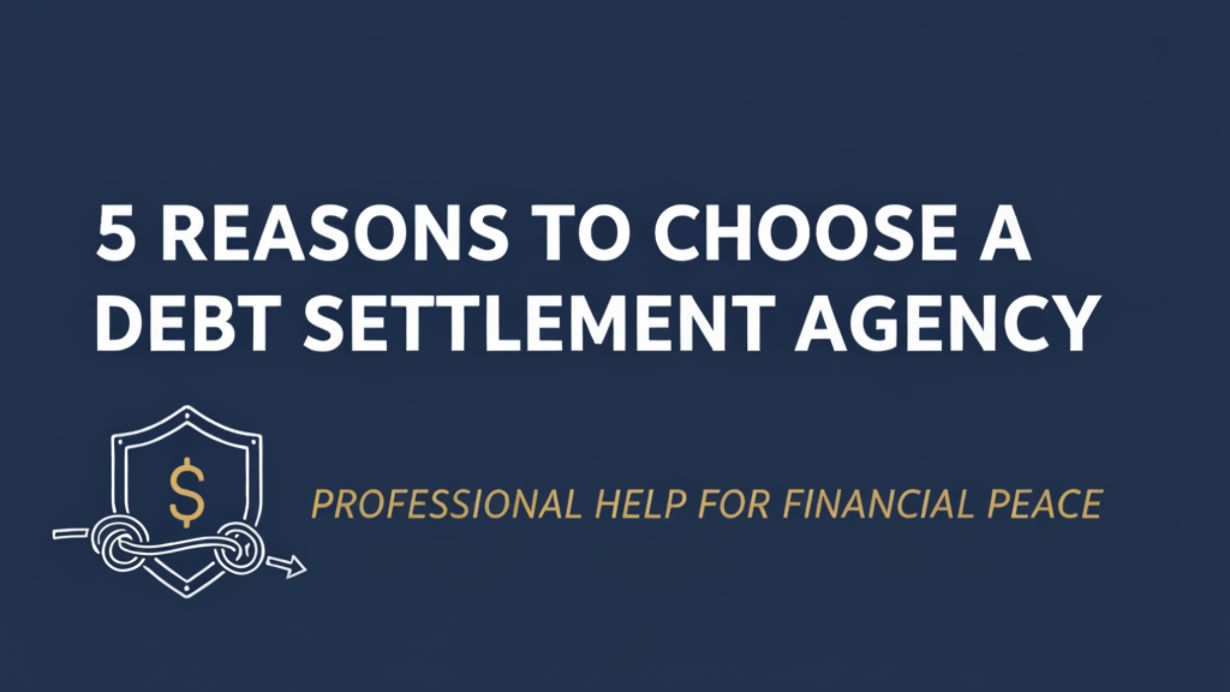· Debt Settlement · 4 min read
The Pros and Cons of Debt Settlement vs. Bankruptcy: A Comprehensive Guide
When liabilities become overwhelming, individuals often face two primary options: debt settlement or declaring bankruptcy. Each approach has its own advantages and drawbacks, and the best course of action depends on personal goals, financial circumstances, and the willingness to accept long-term consequences.

People frequently face two main options when their liabilities become overwhelming: debt settlement or declaring bankruptcy. Each strategy has its advantages and disadvantages, and the optimal course of action depends on your goals, financial status, and willingness to accept long-term consequences. In this guide, we will examine the key distinctions between bankruptcy and debt settlement, along with the benefits and drawbacks of each.
Understanding Debt Settlement
A debt settlement is an arrangement where a creditor agrees to accept a reduced payment from the borrower as full settlement of the debt. Simply put, it’s an agreement between a borrower and a creditor to reduce the debt owed.
Debt settlement is a common solution for individuals struggling with high-interest credit cards or loans. It involves negotiating with creditors to settle debts for a fraction of what is owed, helping borrowers avoid bankruptcy and regain financial stability. This process can benefit both the borrower and the lender, allowing the borrower to meet their financial obligations and the lender to recover some funds.
Advantages of debt settlement include avoiding default, reducing loan payments, and eliminating debt. Debt settlement can also help borrowers manage their repayment obligations, making repayment less burdensome.
However, there are risks associated with debt settlement, such as negative effects on credit scores, the accumulation of penalties and interest, significant fees for debt settlement services, and additional costs for maintaining a debt settlement account.
In summary, debt settlement can be a lifeline for those struggling to make ends meet by negotiating with creditors to settle debts for a fraction of what is owed. By working with a reputable company that negotiates with creditors without requiring upfront payment, individuals can take control of their finances and work toward a debt-free future. While there are downsides, such as an impact on one’s credit score, the benefits can be substantial. With proper research and determination, anyone can regain control of their finances and work toward financial freedom.
Understanding Bankruptcy
Bankruptcy is a legal process that occurs when an individual or corporation is unable to meet its financial obligations. It helps the debtor discharge or restructure debts while providing repayment to creditors.
The process of filing for bankruptcy begins with a court petition submitted by the debtor. Officials then examine the outstanding debt, the nature of the business (whether individual, firm, or corporation), the type of bankruptcy, and other relevant factors. Bankruptcy can result in debts being discharged (either fully or partially) or settled by selling off assets. Bankruptcy procedures vary across different countries.
Filing for bankruptcy typically leads to a significant drop in credit ratings, which makes it difficult to secure loans in the future. However, bankruptcy can offer a fresh start by stabilizing debt obligations. While the credit rating may take a hit, the Insolvency and Bankruptcy Code of 2016 (the New Code) in India seeks to ease the burden for all entities undergoing bankruptcy.
Comparative Analysis: Debt Settlement vs. Bankruptcy
Both debt settlement and bankruptcy provide ways to manage overwhelming debt, but they differ significantly. Debt settlement involves negotiating with creditors to reduce the amount owed but can harm credit and may not always succeed. Bankruptcy, on the other hand, offers legal protection and can discharge debts, though it severely impacts credit and may require the liquidation of assets.
Debt settlement is faster and less public, while bankruptcy offers more comprehensive relief and legal safeguards. The best option depends on factors such as the total amount of debt, available assets, and long-term financial goals, with each option carrying distinct advantages and consequences.
Conclusion
Debt settlement is an agreement between a borrower and a creditor to reduce debt, helping individuals avoid bankruptcy and regain financial stability. It involves negotiating with creditors to settle debts for a fraction of what’s owed, thus reducing loan payments and eliminating debt. However, it carries risks, including adverse effects on credit scores, penalties, interest accrual, and high fees.
Bankruptcy, on the other hand, is a legal process that allows individuals or corporations to address their debts and make repayments to creditors. The best option depends on factors such as total debt, assets, and long-term financial goals.


.zGxLm85-.jpg)
